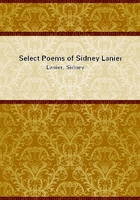
第31章 CHAP. VIII.(6)
Sec. 117. And this has generally given the occasion to mistake in this matter; because commonwealths not permitting any part of their dominions to be dismembered, nor to be enjoyed by any but those of their community, the son cannot ordinarily enjoy the possessions of his father, but under the same terms his father did, by becoming a member of the society; whereby he puts himself presently under the government he finds there established, as much as any other subject of that common-wealth.
And thus the consent of freemen, born under government, which only makes them members of it, being given separately in their turns, as each comes to be of age, and not in a multitude together; people take no notice of it, and thinking it not done at all, or not necessary, conclude they are naturally subjects as they are men.
Sec. 118. But, it is plain, governments themselves understand it otherwise; they claim no power over the son, because of that they had over the father; nor look on children as being their subjects, by their fathers being so. If a subject of England have a child, by an English woman in France, whose subject is he? Not the king of England's; for he must have leave to be admitted to the privileges of it: nor the king of France's;for how then has his father a liberty to bring him away, and breed him as he pleases? and who ever was judged as a traytor or deserter, if he left, or warred against a country, for being barely born in it of parents that were aliens there? It is plain then, by the practice of governments themselves, as well as by the law of right reason, that a child is born a subject of no country or government. He is under his father's tuition and authority, till he comes to age of discretion; and then he is a freeman, at liberty what government he will put himself under, what body politic he will unite himself to: for if an Englishman's son, born in France, be at liberty, and may do so, it is evident there is no tie upon him by his father's being a subject of this kingdom; nor is he bound up by any compact of his ancestors. And why then hath not his son, by the same reason, the same liberty, though he be born any where else? Since the power that a father hath naturally over his children, is the same, where-ever they be born, and the ties of natural obligations, are not bounded by the positive limits of kingdoms and commonwealths.
Sec. 119. Every man being, as has been shewed, naturally free, and nothing being able to put him into subjection to any earthly power, but only his own consent; it is to be considered, what shall be understood to be a sufficient declaration of a man's consent, to make him subject to the laws of any government.
There is a common distinction of an express and a tacit consent, which will concern our present case. No body doubts but an express consent, of any man entering into any society, makes him a perfect member of that society, a subject of that government.
The difficulty is, what ought to be looked upon as a tacit consent, and how far it binds, i.e. how far any one shall be looked on to have consented, and thereby submitted to any government, where he has made no expressions of it at all. And to this I say, that every man, that hath any possessions, or enjoyment, of any part of the dominions of any government, cloth thereby give his tacit consent, and is as far forth obliged to obedience to the laws of that government, during such enjoyment, as any one under it; whether this his possession be of land, to him and his heirs for ever, or a lodging only for a week; or whether it be barely travelling freely on the highway; and in effect, it reaches as far as the very being of any one within the territories of that government.